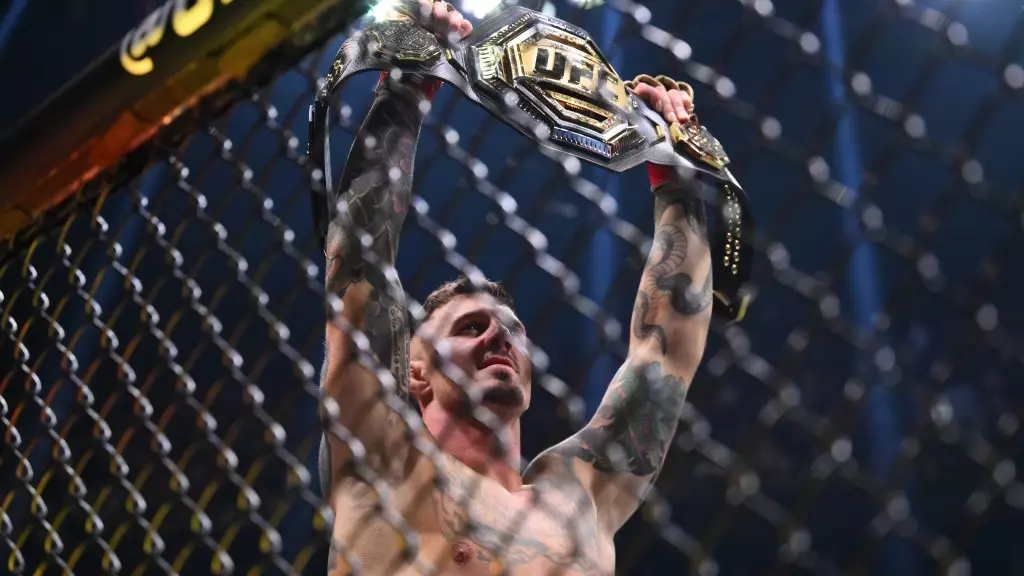The world of mixed martial arts (MMA) often places a significant emphasis on legacy, with fighters not only looking to win bouts but also to cement their status as all-time greats. In this context, Alexander Volkanovski’s recent assertions regarding Jon Jones’ potential fight with Tom Aspinall reveal intricate dynamics within the UFC’s heavyweight division. With Jones preparing to defend his heavyweight title against Stipe Miocic at the highly anticipated UFC 309 event, the implications of his decisions regarding future matchups become all the more critical.
Jones, boasting an impressive record of 27 wins and only one loss, has consistently been at the forefront of MMA discussions regarding greatness. However, Volkanovski argues that for Jones to solidify his title as the rightful heavyweight champion, a matchup with interim champion Tom Aspinall is essential. Volkanovski emphasizes that without facing Aspinall, who he deems as a legitimate threat with dynamic attributes, Jones’ claim to being a true champion may lack substance. This perspective shines a light on a common theme in combat sports—validation through direct competition against the top contenders.
The fact that Jones regards his victory over Ciryl Gane as sufficient grounds for his championship status reflects a controversial but not uncommon mindset among champions: prioritizing marquee matchups or what’s perceived as lucrative over the complexities of title scene congestions.
Volkanovski’s critique doesn’t just address the need for competition but highlights a more profound conflict between legacy and profitability within the UFC. He recognizes Jones’ interest in facing UFC light heavyweight champion Alex Pereira, ostensibly for financial gain rather than historical significance. Volkanovski’s insight reveals a frequent dilemma faced by fighters: Whether to pursue legacy-defining fights or those that promise larger financial returns. While pursuing second stints in different weight classes can create exciting matchups, it can sometimes undermine an athlete’s ties to their division.
The allure of a fight against Pereira—who is undeniably a significant name in the MMA community—raises questions about whether fighters are genuinely motivated by the pursuit of greatness or by financial incentives. This environment creates speculative narratives, impacting how fans and analysts perceive a fighter’s character and ambition.
The Path Forward for Jones and Aspinall
As MMA continues to evolve, discussions about legacy, competition, and profitability will only intensify. If Jon Jones aims to be remembered as one of the greatest, embracing challenges like Tom Aspinall may become non-negotiable. The MMA world is undeniably captivated by the stories that unfold within the octagon, and the narratives become richer when champions are tested by their fiercest rivals. For Jones, the decision to confront Aspinall could potentially redefine his legacy, validating his place as a true heavyweight champion amidst the complex territory of historical significance versus economic opportunity.
The upcoming battle between Jones and Miocic at UFC 309 will not just serve as a testament to their fighting skills but may also shape the future trajectory of the heavyweight division and further illustrate the balancing act between ambition and capital that defines the sport today.

